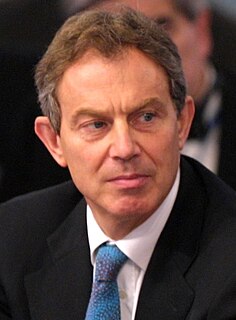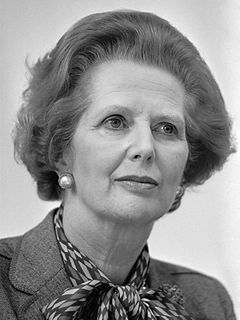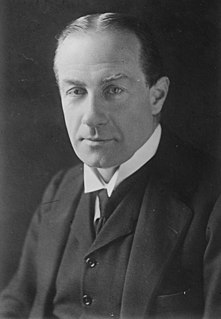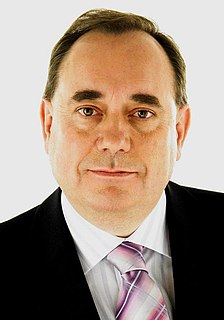This is a list of the British Labour Party general election manifestos since the nascent party first fielded candidates at the 1900 general election. From its foundation, general election manifestos were issued for the Labour Party as a whole, whereas the manifestos of the Conservative and Liberal parties generally took the form of a form of a short personal address by the leader of the party until the 1950s.
| Election | Leader | Election winner | Manifesto title | Link to text |
|---|---|---|---|---|
| 2019 | Jeremy Corbyn | Conservative | It's Time for Real Change | |
| 2017 | Jeremy Corbyn | Hung (Conservative with DUP confidence & supply) | For the Many, Not the Few | |
| 2015 | Ed Miliband | Conservative | Britain Can Be Better | |
| 2010 | Gordon Brown | Hung (Conservative-led coalition) | A Future Fair for All | |
| 2005 | Tony Blair | Labour | Britain Forward, Not Back | |
| 2001 | Tony Blair | Labour | Ambitions for Britain | |
| 1997 | Tony Blair | Labour | New Labour: Because Britain Deserves Better | |
| 1992 | Neil Kinnock | Conservative | It's Time to Get Britain Working Again | |
| 1987 | Neil Kinnock | Conservative | Britain Will Win with Labour | |
| 1983 | Michael Foot | Conservative | The New Hope for Britain | |
| 1979 | James Callaghan | Conservative | The Labour Way Is the Better Way | |
| October 1974 | Harold Wilson | Labour | Britain Will Win with Labour | |
| February 1974 | Harold Wilson | Hung (Labour) | Let Us Work Together – Labour's Way Out of the Crisis | |
| 1970 | Harold Wilson | Conservative | Now Britain's Strong – Let's Make It Great to Live In | |
| 1966 | Harold Wilson | Labour | Time for Decision | |
| 1964 | Harold Wilson | Labour | The New Britain | |
| 1959 | Hugh Gaitskell | Conservative | Britain Belongs to You | |
| 1955 | Clement Attlee | Conservative | Forward with Labour | |
| 1951 | Clement Attlee | Conservative | Labour Party Election Manifesto | |
| 1950 | Clement Attlee | Labour | Let Us Win Through Together | |
| 1945 | Clement Attlee | Labour | Let Us Face the Future | |
| 1935 | Clement Attlee | National Government | The Labour Party's Call to Power | |
| 1931 | Arthur Henderson | National Government | Labour's Call to Action | |
| 1929 | Ramsay MacDonald | Hung (Labour) | Labour's Appeal to the Nation | |
| 1924 | Ramsay MacDonald | Conservative | Labour's Appeal to the People | |
| 1923 | Ramsay MacDonald | Hung (Labour) | Labour's Appeal to the Nation | |
| 1922 | J. R. Clynes | Conservative | Labour's Call to the People | |
| 1918 | William Adamson | Hung (Conservative-dominated coalition) | Labour's Call to the People | |
| December 1910 | George Barnes | Hung (Liberal with Irish Nationalist support) | December 1910 Labour Party General Election Manifesto | |
| January 1910 | Arthur Henderson | Hung (Liberal with Irish Nationalist support) | January 1910 Labour Party General Election Manifesto | |
| 1906 | Keir Hardie | Liberal | 1906 Labour Party General Election Manifesto | |
| 1900 | Conservative | 1900 Labour Party General Election Manifesto |

The 1997 United Kingdom general election was held on 1 May 1997. The governing Conservative Party led by Prime Minister John Major was defeated in a landslide by the Labour Party led by Tony Blair, achieving a 179 seat majority.

The 1979 United Kingdom general election was held on Thursday 3 May 1979 to elect 635 members to the British House of Commons.

The 1983 United Kingdom general election was held on Thursday 9 June 1983. It gave the Conservative Party under the leadership of Margaret Thatcher the most decisive election victory since that of the Labour Party in 1945, with a majority of 144 seats.

The October 1974 United Kingdom general election took place on Thursday 10 October 1974 to elect 635 members of the British House of Commons. It was the second general election held that year, the first year that two general elections were held in the same year since 1910, and the first time that two general elections were held less than a year apart from each other since the 1923 and 1924 elections, which took place 10 months apart. The election resulted in the Labour Party led by Harold Wilson winning a bare majority of just 3 seats. This enabled the remainder of the Labour government, 1974–1979 to take place, which saw a gradual loss of its majority.

The 1945 United Kingdom general election was a national election held on 5 July 1945, but polling in some constituencies was delayed by some days, and the counting of votes was delayed until 26 July to provide time for overseas votes to be brought to Britain. The governing Conservative Party sought to maintain its position in Parliament but faced challenges from public opinion about the future of the United Kingdom in the post-war period. British Prime Minister Winston Churchill proposed to call for a general election in Parliament, which passed with a majority vote less than two months after the conclusion of the Second World War in Europe.

The 1964 United Kingdom general election was held on 15 October 1964, five years after the previous election, and thirteen years after the Conservative Party, first led by Winston Churchill, had regained power. It resulted in the Conservatives, led by the incumbent Prime Minister Alec Douglas-Home, narrowly losing to the Labour Party, led by Harold Wilson; Labour secured a parliamentary majority of four seats and ended its thirteen years in opposition. Wilson became the youngest Prime Minister since Lord Rosebery in 1894. To date, this is also the most narrow majority obtained in the House of Commons with just 1 seat clearing labour for Majority Government.

The 1950 United Kingdom general election was the first ever to be held after a full term of Labour government. The election was held on Thursday 23 February 1950, and was the first held following the abolition of plural voting and university constituencies. The government's 1945 lead over the Conservative Party shrank dramatically, and Labour was returned to power but with an overall majority reduced from 146 to just 5. There was a 2.8% national swing towards the Conservatives, who gained 90 seats. Labour called another general election in 1951, which the Conservative Party won.

The 1951 United Kingdom general election was held twenty months after the 1950 general election, which the Labour Party had won with a slim majority of just five seats. The Labour government called a snap election for Thursday 25 October 1951 in the hope of increasing its parliamentary majority. However, despite winning the popular vote and achieving both the highest-ever total vote and highest percentage vote share, Labour won fewer seats than the Conservative Party. This election marked the return of Winston Churchill as Prime Minister, and the beginning of Labour's thirteen-year spell in opposition. This was the third and final general election to be held during the reign of King George VI, for he died the following year on 6 February and was succeeded by his daughter, Elizabeth II. It is also the most recent election in which the Conservatives have done better in Scotland than in England.

The 1959 United Kingdom general election was held on Thursday, 8 October 1959. It marked a third consecutive victory for the ruling Conservative Party, now led by Harold Macmillan. For the second time in a row, the Conservatives increased their overall majority in Parliament, this time to a landslide majority of 100 seats, having gained 20 seats for a return of 365. The Labour Party, led by Hugh Gaitskell, lost 19 seats and returned 258. The Liberal Party, led by Jo Grimond, again returned only six MPs to the House of Commons, but managed to increase its overall share of the vote to 5.9%, compared to just 2.7% four years earlier.

The 1924 United Kingdom general election was held on Wednesday 29 October 1924, as a result of the defeat of the Labour minority government, led by Ramsay MacDonald, in the House of Commons on a motion of no confidence. It was the third general election to be held in less than two years. Parliament was dissolved on 9 October.

The 1923 United Kingdom general election was held on Thursday 6 December 1923. The Conservatives, led by Stanley Baldwin, won the most seats, but Labour, led by Ramsay MacDonald, and H. H. Asquith's reunited Liberal Party gained enough seats to produce a hung parliament. It is the most recent UK general election in which a third party won over 100 seats. The Liberals' percentage of the vote, 29.7%, has not been exceeded by a third party at any general election since.

The 1922 United Kingdom general election was held on Wednesday 15 November 1922. It was won by the Conservative Party, led by Bonar Law, which gained an overall majority over the Labour Party, led by J. R. Clynes, and a divided Liberal Party.

The 1900 United Kingdom general election was held between 26 September and 24 October 1900, following the dissolution of Parliament on 25 September. Also referred to as the Khaki Election, it was held at a time when it was widely believed that the Second Boer War had effectively been won.
In the United Kingdom, the word liberalism can have any of several meanings. Scholars use the term to refer to classical liberalism; the term can also mean economic liberalism, social liberalism or political liberalism; it can simply refer to the politics of the Liberal Democrat party; it can occasionally have the imported American meaning, however, the derogatory connotation is much weaker in the UK than in the US, and social liberals from both the left and right wing continue to use liberal and illiberal to describe themselves and their opponents, respectively.

The 2005 United Kingdom general election was held on Thursday 5 May 2005, to elect 646 members to the House of Commons. The Labour Party, led by Tony Blair, won its third consecutive victory, with Blair becoming the second Labour leader after Harold Wilson to form three majority governments. However, its majority fell to 66 seats compared to the 167-seat majority it had won four years before. This was the first time the Labour Party had won a third consecutive election, and remains the party's most recent general election victory.

The 2011 Scottish Parliament election was held on Thursday, 5 May 2011 to elect 129 members to the Scottish Parliament.

The 2019 United Kingdom general election was held on Thursday, 12 December 2019. It resulted in the Conservative Party receiving a landslide majority of 80 seats. The Conservatives made a net gain of 48 seats and won 43.6% of the popular vote – the highest percentage for any party since 1979.